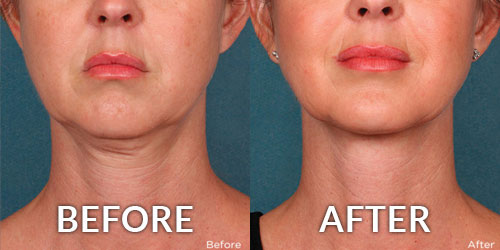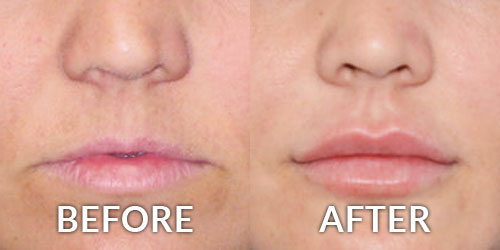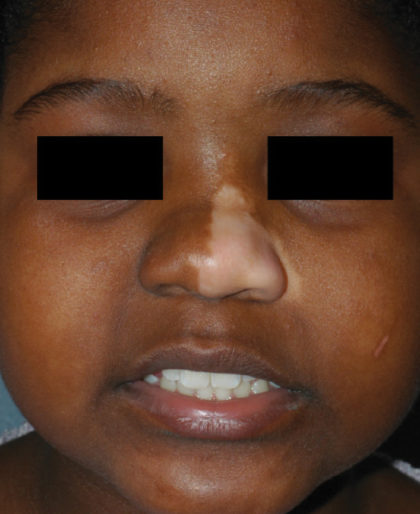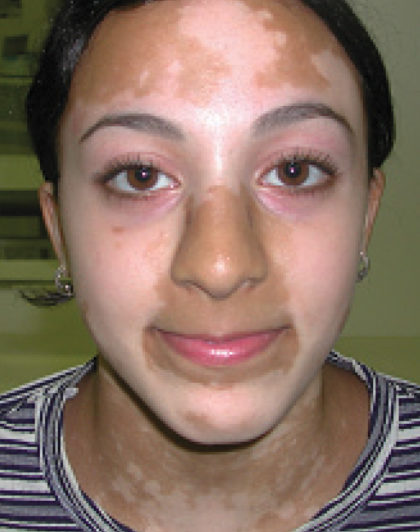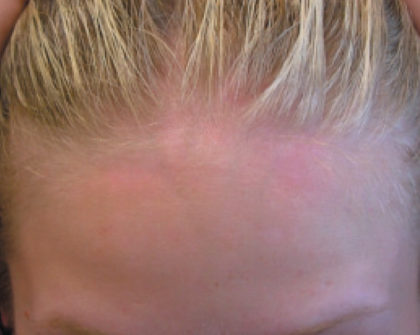Treating Psoriasis
Consultations offered at our two convenient locations in Phoenix and Scottsdale

Psoriasis is a skin condition without a known cause or cure, but today there are more effective treatments than ever before to manage its symptoms. This common autoimmune disease is recognizable by itchy and painful scales and red patches. During a flare-up, the body’s immune response becomes dysregulated, and inflammation occurs, as the immune system responds to an injury that hasn’t occurred. This causes skin cells grow too quickly and form scales and red patches. [1]
It is important to understand that psoriasis is not contagious and cannot be passed from person to person. Still, it can be a painful and embarrassing skin condition, and at Phoenix Skin Medical, Surgical, and Cosmetic Dermatology, we have various treatment choices for our patients in Phoenix and Scottsdale, AZ. To find out which treatment will best suit your psoriasis concerns, read on, then call (602) 222-9111 in Phoenix or (480) 473-9111 in Scottsdale to schedule your consultation. Painful psoriasis symptoms can be a thing of the past with treatment at Phoenix Skin!
Follow the Phoenix Skin Medical company blog for insider tips on common skin conditions and the latest developments in the world of dermatology.
Contents
- 1 Before and After Photos
- 2 More About Psoriasis
- 3 Psoriasis Management Options at Phoenix Skin
- 4 Topical Therapy for Psoriasis
- 5 Xtrac Laser Light Therapy
- 6 Oral Immunomodulators
- 7 Biological Medications for The Treatment of Psoriasis
- 8 Intralesional Local Steroid Injections
- 9 Relieving Psoriasis Symptoms in Arizona
- 10 What is the Cost of Psoriasis Treatment in Phoenix?
- 11 References
Before and After Photos
More About Psoriasis
Psoriasis is a chronic condition characterized by the rapid buildup of skin cells on the skin’s surface, but it is not limited to just the skin but can also affect the joints and other body parts. There are approximately 6 million people in the US alone who struggle with psoriasis. [2]
Psoriasis can present anywhere on the body and can vary in severity from small, localized patches to complete body coverage.
There are several types of psoriasis, including
- Plaque psoriasis
- Guttate psoriasis
- Inverse psoriasis
- Pustular psoriasis
The most common form, plaque psoriasis, typically appears as raised, red patches covered with a dense layer of silvery white dead skin cells.
Most patients with psoriasis know what the painful skin condition is, but for those unsure what might be causing their skin concerns, here are the symptoms of psoriasis:
- Red, scaly patches on the skin, also called plaques
- Dry, cracked skin that may bleed
- Itching and burning sensations
- Thickened, pitted, or ridged nails
- Swollen and stiff joints (in case of psoriatic arthritis)
Some types of psoriasis can also produce small pustules or pus-filled bumps on the skin. The most common areas affected are the scalp, elbows, and knees, but psoriasis can appear anywhere on the body. Not everyone with psoriasis will have the same symptoms, which can come and go over time. Flare-ups can be triggered by several factors, including stress, injury to the skin, certain medications, and infections. [3]
If you have symptoms that might be due to psoriasis, it’s a good idea to see a dermatologist for a diagnosis and suggested treatment options. At Phoenix Skin Medical, Surgical & Cosmetic Dermatology, we offer a wide range of treatment options for psoriasis. Our team of board certified physicians, physician assistants and nurse practitioners will create a personalized treatment plan that addresses your symptoms and goals. We are committed to helping you achieve healthy, clear skin.
Psoriasis Management Options at Phoenix Skin
There are many treatment options for psoriasis symptoms, and while choosing the best course of action can feel overwhelming, the team at Phoenix Skin walks each patient through all their options. Depending on your symptoms, and medical history, we can recommend a personalized treatment plan that may include topical creams and ointments, light therapy, and oral or injectable medications.
Topical Therapy for Psoriasis
Topical corticosteroids are a standard treatment option for psoriasis. These medications are applied directly to the affected skin and work by reducing inflammation and slowing down the growth of skin cells. They are available in various strengths and formulations, including creams, ointments, lotions, and gels.
Topical corticosteroids come in different potencies; some are over the counter and others by prescription. The right strength and frequency of application will depend on the severity of psoriasis and the location of the affected skin. We can help determine the best strength to alleviate your symptoms and prescribe you a topical corticosteroid if necessary.
Nonsteroidal options are also available for the treatment of psoriasis, they include:
Topical Retinoids
Retinoids are derived from vitamin A and are used to help regulate the production of skin cells. They can speed up the production of new, healthy skin, while slowing down the keratinization process, which is what leads to scaling. Vitamin A is the first vitamin approved by the FDA for the treatment of psoriasis symptoms. [4]
Topical Calcineurin Inhibitors (TCIs)
Tacrolimus ointment and pimecrolimus cream are medications that target the immune system and can reduce inflammation in the skin.
Topical Coal Tar Preparations
Coal tar can slow the growth of skin cells and reduce inflammation. It’s also been known to relieve itching and scaling.
Dithranol
This medication is a strong synthetic compound used in combination with ultraviolet light to slow down the growth of skin cells.
Topical treatments are a crucial aspect of managing psoriasis for most patients. While mild cases of psoriasis may only require the use of topical agents, incorporating topical treatments as an additional therapy in cases of moderate to severe psoriasis can also be beneficial; this is particularly true when combined with other forms of treatment, like light therapy.
Topical treatments can take several weeks to start working, so it is important to be patient and follow the recommendations of Phoenix Skin.
Xtrac Laser Light Therapy
The XTRAC Excimer Laser delivers targeted UV light to affected areas of psoriasis, providing relief for most patients. Patients see significant improvement typically after 6-10 sessions, and clearance of psoriasis symptoms may be achieved in 10-20 sessions.
For some patients, the condition may go into remission for several months. The outcome of treatment with XTRAC Excimer Laser varies depending on the severity of psoriasis, but Phoenix Skin has seen a dramatic improvement in patients’ symptoms with this system.
Oral Immunomodulators
Oral immunomodulators are a type of medication that works by modifying the immune system to reduce inflammation. These medications are taken orally (rather than applied topically), and they are generally used to treat moderate to severe psoriasis or cases where topical treatments alone have not been effective.
Several different types of oral immunomodulators are used to treat psoriasis, including
Otezla (apremilast)
Otezla is a phosphodiesterase 4 (PDE4) inhibitor. It works by blocking the action of an enzyme called phosphodiesterase 4, which is involved in the inflammatory process. By blocking this enzyme, Otezla can reduce inflammation and slow the growth of skin cells, which can help improve symptoms of psoriasis and psoriatic arthritis.
Methotrexate
One of the most widely used oral immunomodulators, methotrexate is a chemotherapy drug used to treat psoriasis because it suppresses the immune system and can reduce inflammation.
Cyclosporine
Cyclosporine is usually used for short-term treatment of severe psoriasis and for those who have contraindications for methotrexate.
Sulfasalazine
This medication targets the gut-associated immune system and has a secondary effect on the skin.
Acitretin
This oral retinoid medication is used to treat severe cases of psoriasis that have not responded to other treatments.
These medications can be effective in treating psoriasis. Still, they can also cause serious side effects and are usually reserved for moderate to severe cases where other treatment options have failed. It’s important to be under the close supervision of a healthcare professional when taking these medications and regularly monitored for side effects.
Biological Medications for The Treatment of Psoriasis
The current standard of care for moderate to severe psoriasis is the use of biological therapies. Biological medications are made using components derived from living organisms, like cells, or proteins. These therapies are often effective, but patients treated with them may need to discontinue treatment or switch to a different biological medication over time. [5] Patients with psoriasis can also develop Psoriatic arthritis (PsA) which is caused by inflammation in joints and connective tissue. There are several biological medications available to treat psoriasis and psoriatic arthritis that work by affecting different parts of the immune system and inflammatory response.
Some examples of biological medications that are used to treat psoriasis include:
Tumor Necrosis Factor (TNF) Inhibitors
You may have seen commercials for Humira, or Enbrel for psoriasis. These are brand names for TNF inhibitors. White blood cells release TNF if they sense an infection, which signals other cells to begin the inflammatory response. These biological medications keep TNF-alpha from sending the signal, and from inflammation from occurring.[6]
Interleukin Inhibitors
These medications, such as ustekinumab and secukinumab, are marketed as Stelara and Cosentyx. Rather than suppress the body’s entire immune response, like TNF inhibitors, they treat psoriasis by targeting interleukin-12 and -23, the inflammatory proteins that are directly involved in a flareup. These medications can be very effective for the treatment of plaque psoriasis. [7]
PDE4 Inhibitors
Apremilast is a medication in this class that blocks the action of phosphodiesterase 4, an enzyme involved in the inflammatory process. It’s marketed as Otezla, and helps control and prevent inflammation. It may also help prevent psoriasis from progressing to psoriatic arthritis.
Biological medications can be very effective in treating psoriasis and psoriatic arthritis (although some are covered by insurance). Still, they are also more expensive and have some potential side effects that should be considered, since they directly affect the immune system. It’s important to discuss the potential risks and benefits of these medications with us before starting treatment. Call (602) 222-9111 in Phoenix or (480) 473-9111 in Scottsdale to schedule your consultation.
Intralesional Local Steroid Injections
Intralesional local steroid injections are a type of treatment for psoriasis involving injecting a small amount of steroid medication directly into flared plaques. This can help to reduce inflammation and slow down the growth of skin cells, which can improve symptoms of psoriasis.
This type of treatment is usually used for small, localized areas of psoriasis that are resistant to topical treatments, such as those on the face or scalp, or when there is difficulty reaching the affected area.
At Phoenix Skin, this procedure is done in-office. It is relatively painless, and it takes only a few minutes. The number of injections needed depends on the size and severity of psoriasis, and the effects of the treatment can last for several weeks or months.
Relieving Psoriasis Symptoms in Arizona
Lifestyle, diet, stress management, and the treatment options mentioned in this post can reduce inflammation and decrease flares. Phoenix Skin has the answer if you struggle to manage the symptoms of your psoriasis. Call us in Phoenix, Az, at (602) 222-9111 or Scottsdale, AZ, at (480) 473-9111, or schedule your consultation online to get started. We look forward to giving you clearer skin and a new lease on life.
What is the Cost of Psoriasis Treatment in Phoenix?
The cost of treating your psoriasis at Phoenix Skin can be better understood by completing a consultation. During the consultation process, we will determine which treatment methods you have previously used, the locations and severity of your psoriasis flare-ups, and your current health and lifestyle choices.
We know psoriasis and its treatments, and we love helping our patients find relief from the painful symptoms of psoriasis. Call for your consultation today!
References
- Nussbaum L, Chen YL, Ogg GS. Role of regulatory T cells in psoriasis pathogenesis and treatment. British Journal of Dermatology. Published online September 2020. doi:10.1111/bjd.19380
- Horn EJ, Fox KM, Patel V, Chiou CF, Dann F, Lebwohl M. Are patients with psoriasis undertreated? Results of National Psoriasis Foundation survey. Journal of the American Academy of Dermatology. 2007;57(6):957-962. doi:10.1016/j.jaad.2007.06.042
- Tampa M, Sarbu MI, Mitran MI, Mitran CI, Matei C, Georgescu SR. The Pathophysiological Mechanisms and the Quest for Biomarkers in Psoriasis, a Stress-Related Skin Disease. Disease Markers. 2018;2018. doi:10.1155/2018/5823684
- Zasada M, Budzisz E. Retinoids: active molecules influencing skin structure formation in cosmetic and dermatological treatments. Advances in Dermatology and Allergology. 2019;36(4):392-397. doi:10.5114/ada.2019.87443
- Yiu ZZN, Mason KJ, Hampton PJ, et al. Drug survival of adalimumab, ustekinumab and secukinumab in patients with psoriasis: a prospective cohort study from the British Association of Dermatologists Biologics and Immunomodulators Register (BADBIR). British Journal of Dermatology. 2020;183(2):294-302. doi:10.1111/bjd.18981
- Rodgers M, Epstein D, Bojke L, et al. Etanercept, Infliximab and Adalimumab for the Treatment of Psoriatic Arthritis: A Systematic Review and Economic Evaluation. NIHR Journals Library; 2011. Accessed January 12, 2023. https://www.ncbi.nlm.nih.gov/books/NBK56827/
- Bilal J, Berlinberg A, Bhattacharjee S, Trost J, Riaz IB, Kurtzman DJB. A systematic review and meta-analysis of the efficacy and safety of the interleukin (IL)-12/23 and IL-17 inhibitors ustekinumab, secukinumab, ixekizumab, brodalumab, guselkumab and tildrakizumab for the treatment of moderate to severe plaque psoriasis. Journal of Dermatological Treatment. 2018;29(6):569-578. doi:10.1080/09546634.2017.1422591





